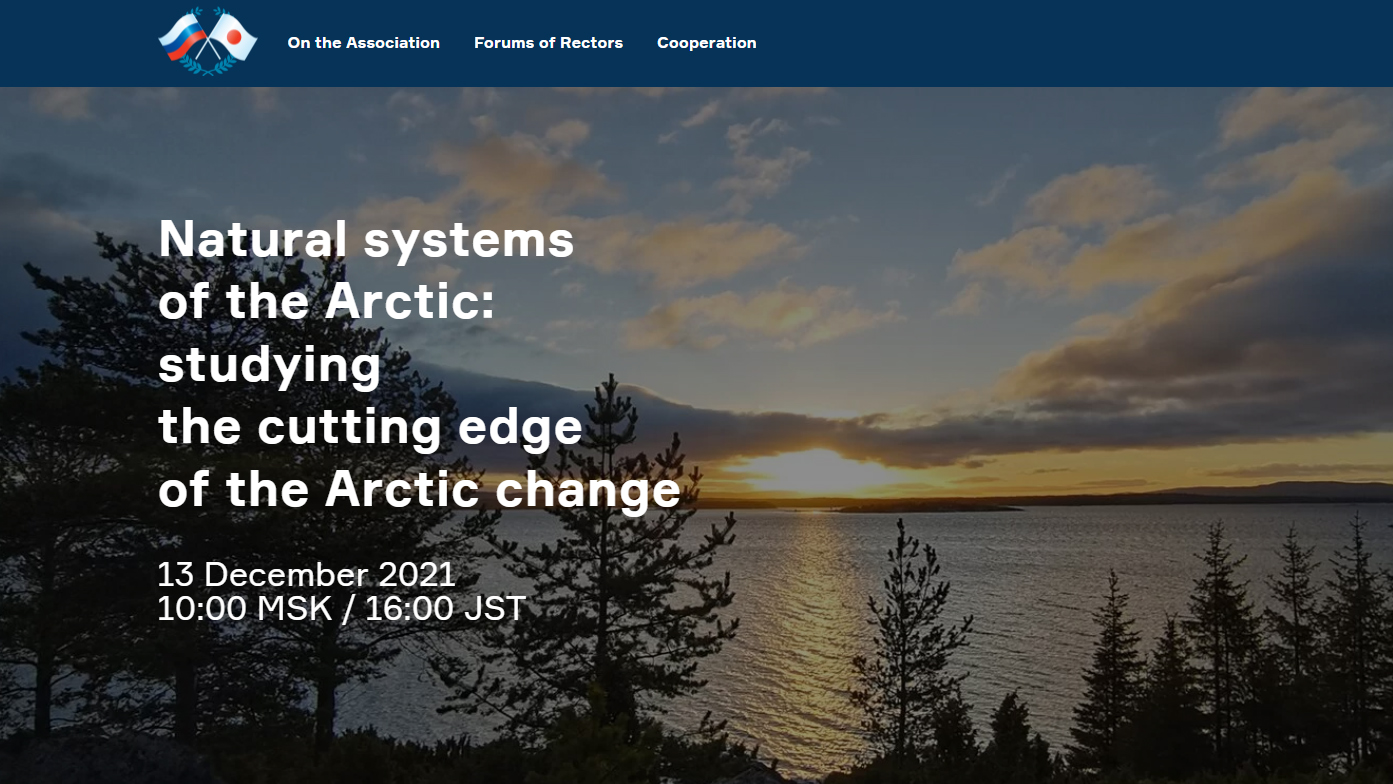The webinar was aimed at highlighting ongoing activities of the long existing bilateral Russia-Japan scientific and educational cooperation which showcased the high level of Arctic competence and collaborative environment among researchers of two countries. Such projects as ArCS and ArCS II (Arctic Challenge for Sustainability II); JST-SICORP — Strategic International Collaborative Research Program with the Japan-Russia research on Rational nature management including Arctic Research and Energy efficiency as well as ARCTIC Hydrological Cycle Changes; RISE project (Climate change Resilience of Indigenous Socio Ecological systems) and others were presented during the session.
After the presentations, speakers touched upon what can jointly be done to follow and implement best practices of such internationally recognized initiatives as the Arctic Council’s Agreement on Enhancing International Arctic Scientific Cooperation, the Arctic Science Ministerial and the International Polar Year.
Speakers discussed the prominent and emerging activities of common interest, for example, to re-think the geographical construct of the Arctic territory to holistically include more territories for bilateral cooperation, and shared strategic points for the future joint efforts:
- Training of the next generation of young scientists within the different mobility programs, exchange within educational and expedition activities;
- Collaborations in the sphere of research infrastructures both vessels (access to icebreakers) and field sites;
- Facilitating the networking activities to overcome cultural and language barriers (e.g.workshops, joint publications, staff exchange, internship, field expeditions access, etc.)
As a result of the online session, a lot of common interest and resources was shared. The experts voiced their interest for more strengthen governmental support (including financial) to flourish the existing and prosperous collaborations among Japanese and Russian colleagues.
To watch the recording and learn more about the speakers, please visit https://rus-japan.rsr-online.ru/webinar202112
